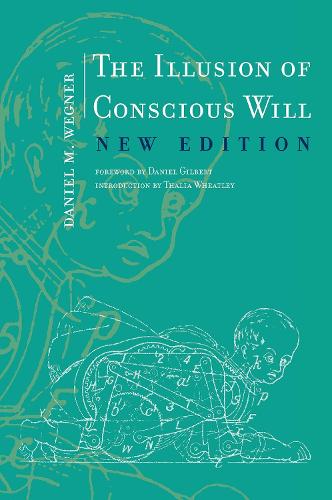
The Illusion of Conscious Will
(Paperback, New Edition)
Publishing Details
The Illusion of Conscious Will
By (Author) Daniel M. Wegner
Foreword by Daniel Gilbert
Introduction by Thalia Wheatley
MIT Press Ltd
MIT Press
22nd December 2017
New Edition
United States
Classifications
Professional and Scholarly
Non Fiction
Cognition and cognitive psychology
Psychology: states of consciousness
153.8
Physical Properties
Paperback
432
Width 152mm, Height 229mm, Spine 22mm
Description
A new edition of Wegner's classic and controversial work, arguing that conscious will simply reminds of us the authorship of our actions.Do we consciously cause our actions, or do they happen to us Philosophers, psychologists, neuroscientists, theologians, and lawyers have long debated the existence of free will versus determinism. With the publication of The Illusion of Conscious Will in 2002, Daniel Wegner proposed an innovative and provocative answer- the feeling of conscious will is created by the mind and brain; it helps us to appreciate and remember our authorship of the things our minds and bodies do. Yes, we feel that we consciously will our actions, Wegner says, but at the same time, our actions happen to us. Although conscious will is an illusion ("the most compelling illusion"), it serves as a guide to understanding ourselves and to developing a sense of responsibility and morality. Wegner was unable to undertake a second edition of the book before his death in 2013; this new edition adds a foreword by Wegner's friend, the prominent psychologist Daniel Gilbert, and an introduction by Wegner's colleague Thalia Wheatley. Approaching conscious will as a topic of psychological study, Wegner examines cases both when people feel that they are willing an act that they are not doing and when they are not willing an act that they in fact are doing in such phenomena as hypnosis, Ouija board spelling, and dissociative identity disorder. Wegner's argument was immediately controversial (called "unwarranted impertinence" by one scholar) but also compelling. Engagingly written, with wit and clarity, The Illusion of Conscious Will was, as Daniel Gilbert writes in the foreword to this edition, Wegner's "magnum opus."
Author Bio
The late Daniel M. Wegner was Professor of Psychology at Harvard University. Thalia Wheatley is Associate Professor of Psychological and Brain Sciences at Dartmouth College.
